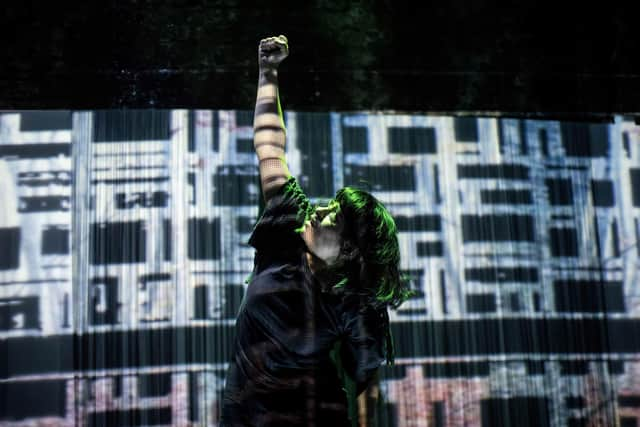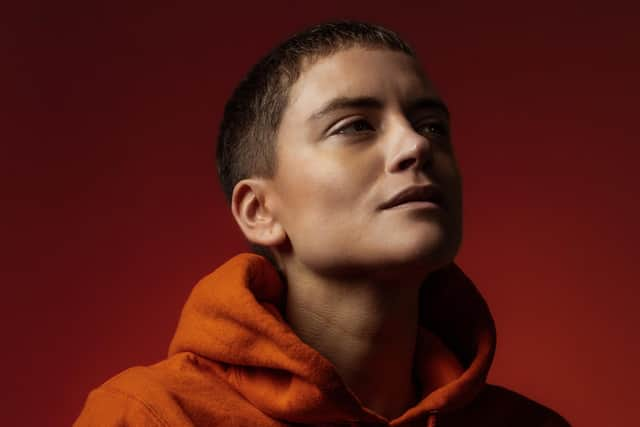Edinburgh Festival Fringe: Wide range of Iran-themed shows in this year's programme
“When we started making this show, it was specifically about Iran,” says playwright, performer and Fringe regular Javaad Alipoor, who’s talking about his new play (with Chris Thorpe) Things Hidden Since the Foundation of the World. Investigating the 1992 murder in his German apartment of exiled Iranian entertainer Fereydoun Farrokhzad, the piece mushroomed into much more, even as the political context of its setting changed around it during its writing.
“At first, the show used the story of Fereydoun Farrokhzad to talk specifically about how different peoples and cultures live on top of each other in the West,” Alipoor continues, explaining that Farrokhzad was “Iran’s Tom Jones” in the 1970s, before his exile as a dissident to Germany following the 1979 revolution, an anonymous immigrant living above a Boon flower shop. Yet to Europe’s Iranian diaspora, he was a star who could still sell out the Royal Albert Hall. His murder was brutal and unsolved.
Advertisement
Hide Ad“The Iranian history in the play was to help an audience understand the story, to understand all the fun we have with music and moustaches,” says Alipoor. “You can't have a show about Iran in the ‘70s without moustaches. Then, when we were in rehearsal, Mahsa Amini was killed, and it became untenable for that not to be reflected. From a show about a refugee at a moment where there was no hope for him, he was completely isolated from his country and about to be murdered, we saw this incredible uprising for democracy, women's rights and civil liberties.


“For those of us in the company with Iranian heritage, it took us out of the headspace of a show which contemplates complete defeat, to instead being a show that’s connected to the live possibilities going on in Iran right now. The strand of the show about Iranian history is now really connected to the Woman, Life, Freedom movement.”
The death in September 2022 of Mahsa Amini while in the custody of Iran’s religious police has brought months of civil unrest in the country, which has inspired other works in Edinburgh this year. Like Alipoor, actor, director and theatremaker Peyvand Sadeghian (whose current television roles include The Power and Bridgerton spin-off Queen Charlotte) has an Iranian father, and her show Dual is rooted in this background.
“It's a show about passports, protest and solidarity,” she says. “It's absurd and unpredictable in parts, because that’s the most truthful depiction of it. The nugget of it is, when I was ten I went to Iran for the first time to meet family and got stuck there. I made it back to London – spoiler! – but I wanted to explore how the papers you're entitled to can directly change your life.”
She wanted to make the show, she says, because post-EU referendum, she was sick of “single-passport-holding Brits telling me how lucky I was to have two passports, while they searched for their closest Irish link for the sake of a cheap holiday.” At the same time, the Windrush scandal was in the news and 2019’s ‘Bloody November’ was happening in Iran. “I began thinking about how we view nationality rights, what we expect from our states, and how no one should ever take their rights for granted.”


This show isn’t prescient in its view of Iran, says Sadeghian; just built on her own awareness of its history, whose roots, she says, stretch back to the Persian coup of 1921, in a country which is “still in the process of defining itself on its own terms… it's important to say that it’s not just about headscarves, Islam or ‘Western’ values, a very easy trap to fall into that I keep coming across, which shows an insidious bias.” Young protesters, she says, need platformed, not patronised. “I hope audiences come away from the show having joined the dots between what they might think of as ‘us’ and ‘them’.”
Advertisement
Hide AdSadeghian has also directed Ramalama Ding Dong by London-based Welsh-Iranian performer and sound artist Roshi Nasehi.
“The show came about after a bizarre racist encounter in 2017,” says Nasehi. “I had just performed at the Leigh Folk Festival in Essex, and on the train back to London a drunk stranger started sneering the phrase ‘ramalama/shamalama/ramadama ding dong’ after hearing me briefly speaking Farsi to my family. Being a performer, I soon found myself thinking about this in stand-up comedy terms, and began adding further context, other racist incidents and attitudes I’ve encountered. Of course, racism is no laughing matter, but it can be ridiculous, surreal and even darkly funny. At open mics it got really positive responses and comparisons to Stewart Lee and Hannah Gadsby, both personal heroes.”
Advertisement
Hide AdLike Sadeghian, Nasehi has tried to raise awareness of what’s happening in Iran through her work. “Some of the show is drawn from recollections of a teenage trip to Iran, complimented by beautiful animated films from visual designer Al Orange,” she says. “I recall the hazy teenage confusion of trying to navigate a cultural landscape that felt familiar and warm on one hand, but also alien and disorienting. This part of the show gently reflects the stoical way people were coping, creatively working around the daily oppression they faced, that strange mix of community, isolation and control that occurs in places like Iran. It feels especially pertinent with the rise of the Woman, Life, Freedom movement.”
Damet Garm (in Persian it means “may your breath stay warm”, a wish of good health) is New York-based TikToker Chelsea Hart’s exploration of a revolution which is led by women, an example they say the increasingly divided West could take on board. “The show delves into some of my own personal stories, mixed with stories about this revolution, with a hope it might spark a desire for the audience to deepen their own empathy and potential and to believe in the potential of the people around them,” says Hart.
“The people on the ground in Iran light up my heart every day. They’re unstoppable in the face of unthinkable terror, and it truly sets an example of what could be possible for us all… I want people to come away curious, engaged and empowered. We all have so much bravery inside us that we just have to believe is there.”
“In the UK, and in England specifically, it’s a cliche that a political playwright should aspire to the ‘state of the nation’ play,” says Javad Alipoor, placing the Iranian struggle in a wider context. “Maybe it's because I come from a diaspora background, but ‘state of the nation’ has always struck me as a bit parochial. I want to think about the networks criss-crossing the globe, because one of the most important things that will define the 21st century are struggles like Iran’s.
“That's uncomfortable for us, as people in the West. However liberal and progressive we get, we still think it's ‘the West and the rest’, right? Actually, this is just one small corner of the globe. How things pan out in the Islamic world, in Eastern Europe and in East Asia will be vitally important.”
Things Hidden Since the Foundation of the World, Traverse Theatre, 15-27 August; Dual, Pleasance Dome, 17-28 August; Ramalama Ding Dong, Summerhall, until 13 August; Chelsea Hart – Damet Garm: How I Joined a Revolution, Gilded Balloon Teviot, until 27 August.